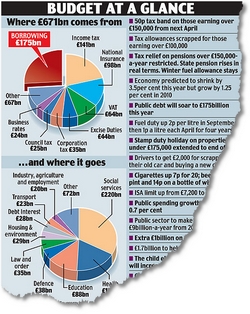In the general economic climate in 2010, for many first time house buyers, this period represents an excellent opportunity to buy a house (new or existing) at a very attractive price in some of the most livable places in their country: though deposits are higher, asking prices are way off their highs, they have multiple choices of properties, initial mortgage rates are very low compared to historical rates, making properties really affordable, if you are a first time buyer.
What’s the risk?
But interest rates are now beginning to creep up slowly in various parts of the world. Central banks are fighting a very difficult balancing act right now: between deflationary recession and inflationary demand, because the usual tools to fight inflation have been relaxed so much. The risk is: if the double-dip is avoided, that rates will rise dramatically from current levels back to historical averages at least to stem the inflationary commodity price spikes.
Get Ready for Higher Rates
For first time buyers, this will mean: increased payments in their mortgage payments. I am enjoying the benefits of the extra 10-20% reduction in my own payments, but am quite sanguine that early next year we’ll see some upward increments in the rates. First time buyers will need to prepare themselves for the return to higher mortgage rates at some point in the next 12 months. What can a first time buyer do?
Fixed Rate Mortgage
Consider locking in rates with a fixed-rate mortgage loan. Why? Simply because the fixed rate mortage will keep payments at the same level for the life of the mortgage. With both mortgage rates and inflation likely to rise in the longer term, the payments will become relatively cheaper over time.
The additional benefit is that, if you know you are going to live in the same house for a long time, you will probably see a rise in nominal house value and cheaper relative mortage payments (because inflation will mean higher pay rises and costs).
And rates right now, albeit higher than Adjustable Rate Mortgages, are quite attractive. One site is featuring rates from 4.75% for 30 years and 4.25% for 15 year fixed rate mortgages (of course, a number of assumptions are made including your credit scores, profession, locality, etc.) so you may find rates more expensive than these numbers.
Increase Your Down Payment
First, figure out how much of the downpayment they can afford to make for their house purchase. The more the better your initial rate will be, and the less you will have to pay in additional rates when rises do come. I wouldn’t recommend any 100% mortages EVER, because of the increased risk that you might face. Try to pay out an initial 10% or even 20% of your house price on purchase, and don’t be tempted to fold additional niceties into the loan amount.
If you have been saving for a few years during the heat of the boom years, you will by now have saved a reasonably large amount. If you haven’t, don’t worry. There is still plenty of time to save money as these lowered prices are going to be with us for some time, at least until the recovery is well underway (in 2011?). So get started saving.
Make Regular Additional Payments
Making regular additional payments against your principal will, depending on your type of agreement and the TOS, mean that your interest payments will go down longer term. It also means that the term to repayment will shorten, and should help save a bundle of cash over the longer term. It’s like being given a surprise payment as the returns on each lump sum payment are pretty attractive. And certainly much more attractive than sticking the money in the bank at 1% pa.
Buy Desirable Property
Overall, I’d be looking to be desirable property, if I were living in the US and househunting. Why? Because it’s all too easy in a down market to only look at the sticker price, but to protect your house value, you will need a keen eye to see the potential purchase in terms of its market position today, and tomorrow. So don’t go looking in the bargain basement section of the real estate market. Those items are usually priced like that FOR A REASON.
Avoid Home Equity Loans
Once you buy your property, avoid taking out additional home equity loans on the house, especially if your initial downpayment was low. It will add to your overall payments each month and rates are much higher than regular mortgages. If you must renovate some or all of your house, try to do it from sources of funds (savings) that don’t put your own equity in the house at risk.
Disclaimer: InvestorBlogger is a homeowner, but doesn’t claim any professional knowledge as such of property markets or lending. Do your own research before you make any decisions.This post is sponsored.

